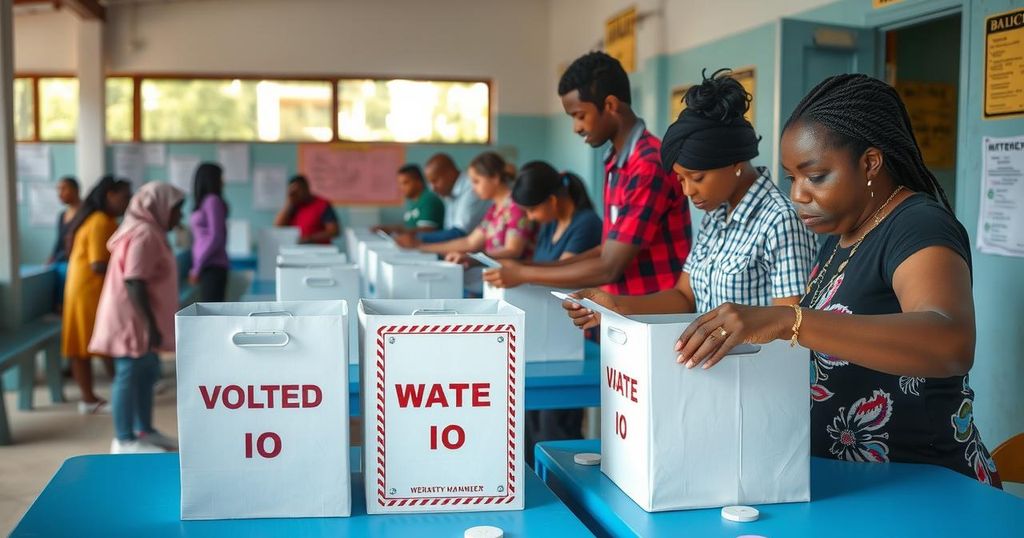World news
ABDALLAH SAMBI, AFRICA, AUSTRALIAN ASSOCIATED PRESS, AZALI ASSOUMANI, COMOROS, ELECTION FRAUD, GOVERNANCE, GOVERNMENT, HAMIDOU KARIHILA, HOPE OF THE COMOROS, INDIAN OCEAN, INDIAN OCEAN ARCHIPELAGO, JUWA, NO, NOUR EL - FATH, OPPOSITION, POLITICS, PRESIDENTIAL ELECTION, REUTERS, SUPREME COURT
Jamal Robinson
0 Comments
Comoros Votes in Crucial Parliamentary Elections Amid Controversy and Allegations
Voters in Comoros are participating in elections for the 33-seat parliament, amidst allegations of electoral irregularities from the recent re-election of President Assoumani. Approximately 338,000 individuals are registered, with accusations of authoritarianism directed at Assoumani, who has ruled since 1999. Some opposition parties are boycotting the election, while others argue for participation to challenge the regime. Election results are expected by Friday.
On Sunday, voters in Comoros began casting their ballots for the nation’s 33-seat parliament, following a controversial election cycle marked by allegations of irregularities during President Azali Assoumani’s recent re-election. Approximately 338,000 individuals are registered to vote in the election, which features nearly 100 candidates approved by the Supreme Court. Assoumani’s tenure, established since his coup in 1999, has faced criticism for authoritarianism, and speculation surrounds his intentions to groom his son, Nour El-Fath, as a successor. While some opposition factions advocate for a boycott, others assert the necessity of participation to highlight the regime’s weaknesses. Election results are anticipated by Friday.
The parliamentary elections in Comoros represent a critical juncture in the political landscape of the Indian Ocean archipelago. Following President Azali Assoumani’s re-election, which the opposition claims involved significant electoral malpractices, the country is at a crossroads. Assoumani’s long-standing rule has raised concerns about his authoritarian methods and aspirations to consolidate power, particularly regarding the involvement of his son in governmental affairs. The 2020 parliamentary elections marked the last round of voting, and the current election aims to address the political grievances voiced by various factions within the opposition.
In summary, the parliamentary elections in Comoros signify an essential phase in the nation’s political evolution, as citizens exercise their right to vote amidst accusations of authoritarianism and electoral fraud. Although the elections have sparked differing opinions regarding participation, voices within the opposition emphasize the importance of engagement to expose systemic flaws. As results are awaited by Friday, the implications of this electoral process may significantly influence the future governance of Comoros.
Original Source: www.stawelltimes.com.au




Post Comment